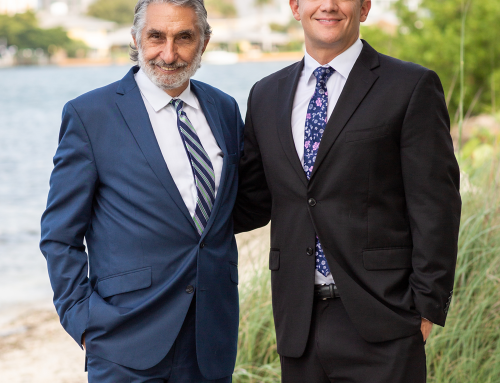If you find yourself facing a legal situation involving personal injury, it may feel a bit overwhelming. After all, you don’t run into these situations every day, and the legal terminology may seem foreign to you.
However, Sarasota personal injury attorneys live, breathe and practice this body of law – all day, every day. We are not only committed to helping you to assert your rights should you need to file a claim or a lawsuit; but we are committed to making sure that you understand and are comfortable with every part of the process. To help you better comprehend the personal injury process, we have compiled a list of some of the most common legal terminology you may hear. If you feel that you may have a case for a personal injury claim, call us immediately.

Basic Legal Terminology Explained
Burden of Proof: Refers to the plaintiff’s obligation to prove his allegations to be true. Thresholds of proof vary based on the type of case being presented.
Comparative Fault/Contributory Negligence: Comparative fault and contributory negligence can reduce or even eliminate damages altogether, depending on situation and state law.
Complaint: The plaintiff initiates a personal injury lawsuit by filing a complaint with the appropriate court.
Damages: Refers to what a plaintiff is seeking to recover in a lawsuit. In a personal injury suit, damages equal money. Damages are separated into two categories, economic damages and non-economic damages. Economic damages are quantifiable damages such as medical expenses, wage loss, replacement services and auto repair bills. Non-economic damages are not specifically quantifiable, and include such things as pain, suffering and humiliation.
Defendant: The defendant is the party that is allegedly liable for the plaintiff’s injuries. Defendants file a formal answer to the complaint against them.
Plaintiff: The plaintiff is the party or group of parties bringing the lawsuit.
Negligence: A tort arising from carelessness or the failure to act with reasonable care, when such conduct causes damage to the person or property of another. (Read more about what you need in order to prove negligence in a court of law. )
No-Fault: In Sarasota, no-fault is most commonly seen in auto accident personal injury cases. Florida’s no-fault laws require that every auto owner be covered by a minimum amount of personal injury protection (PIP) insurance. In the event of damages caused by an auto accident, the injured party collects from their own insurance company rather than filing a lawsuit. They may be able to file a lawsuit if their injuries exceed the threshold set by their own insurance company.
Statute of Limitations: The time period set by law during which you may file suit claiming damages. The statute of limitations can vary from one year to ten years or more depending on the offense. Personal injury cases generally have statutes of limitations in the area of two to five years.
Torts and Intentional Torts: A tort is any wrongful act that is not a crime and does not arise from a contract. Negligence, wrongful death, and libel & slander are examples of torts. Intentional torts are wrongful acts committed on purpose. Many intentional torts can also be crime, such as murder.
Your personal injury case may be a slip and fall at a shopping mall, or a car accident that occurred on your way to work. Whatever the case, if you feel that you have been injured because of the negligence of another party, it is your right to seek damages. Call Probinsky & Cole, and we will discuss your situation with you to determine if you have a case.







